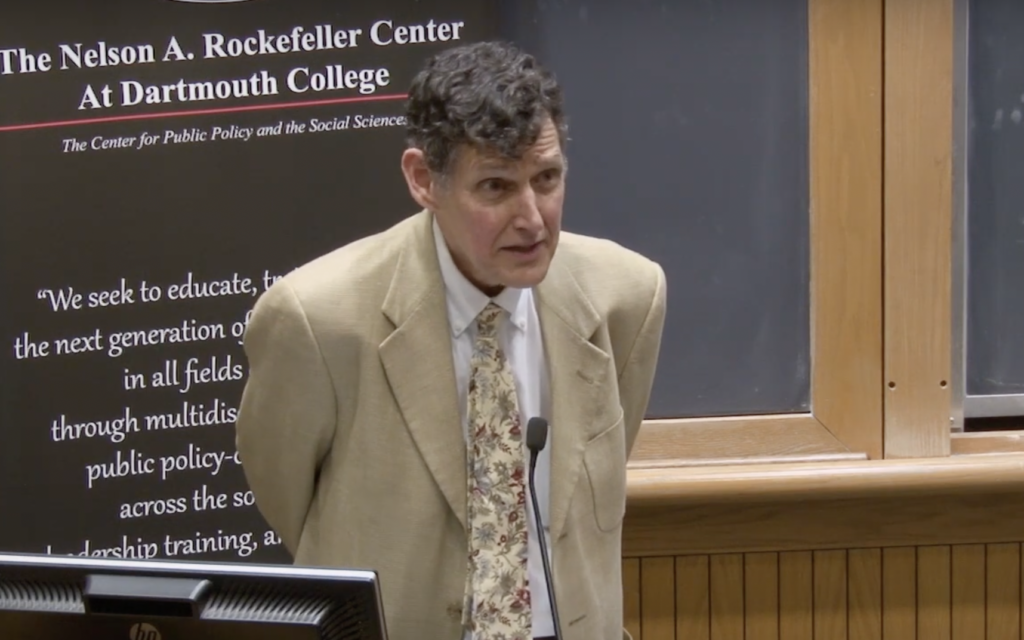
Activism: the beloved pastime of the children of the uber-wealthy who despise the system that facilitated their ability to despise the system. Is this hobby harmful to progress? So asked PEP Director Professor Henry Clark.
As all those even mildly acquainted with Professor Henry Clark know, he is a born teacher. This lecture matched his trademark style. It was an invitation for students and faculty to think for themselves about hitherto unconsidered questions: What is the value of activism? Under what conditions is activism successful? And is activism harmful for progress?
The basic argument was as follows: After reading the book Factfulness, Professor Clark realized how widespread intellectual misconceptions are about progress. The most “educated” among us assume the world is far worse on empirical benchmarks of bloodshed, poverty, hunger, et cetera than it actually is. This material progress has, for the most part, not been due to activism. Contemporary activism, especially since the 1960s, operates under a worldview that society is like a set of billiard balls. If one hits one’s pool stick in the right direction, one can control society exactly as one imagines. “If only forces of reaction would cease, then society would work as we imagine,” they think to themselves, or more often, yell at everyone else.
That is, anyway, the lecture in my own words, very far from those of Professor Clark’s elegant presentation. My own view on the topic is different. While I admire the counter-intuitive slant of the lecture, I feel the need to reject it. I would assert that there is no such thing as a young conservative.
Conservatism is a disposition, or, as George Will put it, a sensibility. Without getting too far into the musty corridors of knowledge that comprise intellectual history, it is worth briefly noting that conservatism can be traced, according to many self-avowed conservatives, to Edmund Burke and his Reflections on the Revolution in France, which argues for a “contract among the living and the dead” and one where the faultiness of each individual’s judgment is made up for by the combined wisdom of the generations.
Any student protester at Dartmouth would fail to realize the combined wisdom of Eleazar Wheelock and his successors, for example. Any youth who has even an iota of virility realizes how absurd this vision is. Of course, it is a profound vision of combined prudence. But the hatred of the present that it implies is for those who are already dead. We must act in the present with our own prudence.
But then we get to a debate about terms—Professor Clark left it undefined. Perhaps we can use Justice Potter Stewart’s definition of pornography: “I know it when I see it.” A member of the audience brought up a dichotomy between organizing versus activism, the former attempting to deal with specific goals while the latter more with abstract national or social issues.
There’s a difference between unionizing and hunger-striking for Palestine. Eitan Hersh’s book Politics Is for Power influenced my own thinking on the subject. To Hersh, most political “activism” is that of a hobbyist: watching TV, yelling about national politics, debating strangers. What matters is participating in the local, gathering constituencies and using civic governance.
As an addendum, there is a sort of incomprehensibility to many leftists. They both accept the importance of activism in the world, yet can be found preaching Immanuel Wallerstein the next day. Which is it: an insurmountable system of global capitalism, or a precarious balance that an impromptu hunger strike will solve? There is an infinite amount of enjoyable writing to be done with Tom Wolfeian-sneer about the wealth of the socialists, the gay supporters of Hamas, et cetera et cetera. But one should not forget that there is also some definite amount of validity that underscores all such commentary.

Be the first to comment on "Political Economy Project’s Clark on Activism and Activists"